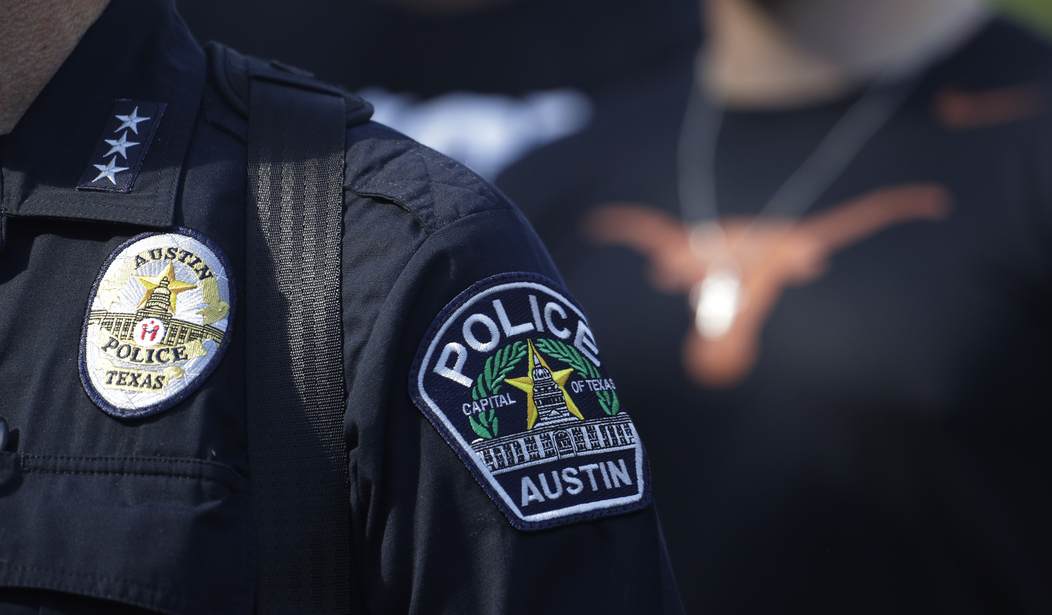The Texas Board of Pardons and Parole hasn't released the results of its investigation that led board members to unanimously recommend Gov. Greg Abbott issue a full pardon and restoration of rights to Daniel Perry, but a newly-revealed letter written to the board by interim Austin Police Chief Robin Henderson is helping to shed some light on why the board reached its decision.
The letter, which was drafted but never sent, also recommended Perry be pardoned. Henderson pointed out several issues with the prosecution of Perry, including the evidence presented to the grand jury that led to Perry's indictment on murder charges.
The document, on departmental letterhead, echoes the belief of the lead investigator in the case that the prosecution of Perry in the shooting death of Garrett Foster was based on “conjecture,” “innuendo” and a “character assassination” of Perry, who wrote racist and threatening social media posts.
The draft, obtained by the American-Statesman and KVUE-TV on Tuesday, bears the signature line of interim Police Chief Robin Henderson.
The letter rejects the guilty verdict of a Travis County jury a year earlier and reiterates the Police Department’s finding that the shooting was justified, adding, “Mr. Perry should have never been charged.”
The department was poised to send the document to the Texas Board of Pardons and Paroles a day before Gov. Greg Abbott granted clemency to Perry last week. But Henderson said in a statement Tuesday to the Statesman that "ultimately the drafted letter was not submitted. After discussions with city leadership, as is standard in certain situations, I decided not to submit the letter."
Here's the entire text of the letter obtained by the Austin American-Statesman and KVUE-TV:
Thank you for giving me an opportunity to provide a statement regarding the request of clemency for Daniel Scott Perry, who is currently serving an unjust sentence for 1st Degree Murder. I am writing to respectfully support Mr. Perry’s request for clemency and believe this is warranted based on a review of the facts and circumstances surrounding the tragic incident that occurred on July 25th, 2020. Objectively, and in light of all of the evidence in this case, Mr. Perry should have never been charged and was deprived of his due process rights.
As law enforcement officers, we are bestowed the honorable duty to investigate, collect, and provide complete and honest unbiased facts to the citizens of this state. This unbiased collectionand presentation of evidence must be conducted separate from political and emotional influence. This duty is not taken lightly and is essential for justice to occur in order for the public to maintain trust in a system that is designed to protect the innocent, while at the same time holding those who violate the law accountable for their actions.
The murder investigation into Garret Foster was assigned to now retired APD Homicide Detective David Fugitt. Detective Fugitt worked in the APD Homicide Unit for over 19 years, was assigned as primary investigator on 68 cases, and assisted in some supportive way in over 700 homicides during his tenure. In coming to the conclusions described in this letter, APD consulted with Detective Fugitt for his insight as the subject matter expert for not only homicide investigations in general, but this specific case as well. He pointed out to us that the investigation into the death of another human being is a heavy responsibility, and that it is just as important to exonerate the innocent as convict the guilty.
For full context, it is our understanding that Detective Fugitt was interviewed at length in February by the Texas Board of Pardons and Paroles committee members and a full copy of the entire investigative case file was provided to them. It is the belief of Detective Fugitt that the prosecution of Mr. Perry was not based on the merits of direct evidence, but by conjecture, innuendo, character assassination, and more importantly, the exclusion of exculpatory evidence. APD’s investigation showed that Mr. Perry had the right to be on the public roadway, in the incorporated city limits of Austin, Travis County, Texas, that he did not provoke an armed encounter with Garrett Foster or engage in criminal activity other than a traffic violation, and that he acted justifiably in self-defense under Texas Penal Code Sec. 9.32 – (Deadly Force in Defense of Person. Justified Homicide).
The Austin Police Department Homicide Unit, the entire chain of command up to and including myself, agree with Detective Fugitt’s conclusion that this was a justified homicide and that Mr. Perry acted in self-defense. We collectively feel that for justice to be served, a full pardon and restoration of his firearm rights should be granted to Mr. Perry. Thank you for your time and consideration of this matter. Please feel free to contact me if you require any further information.
It's pretty clear that Henderson faced political pressure not to submit the letter once it was written. Austin Mayor Kirk Watson told the American-Statesman it was "not an appropriate role for the Austin Police Department, and those words have no place on official letterhead."
I disagree. The homicide detective who investigated the death of Garrett Foster concluded that Perry should not have been charged with a crime, and as Henderson said, the "entire chain of command" agreed with the detective's conclusion. I think that's not only appropriate information to share with the Board of Pardons and Parole, but vitally important information for the board to consider. The American-Statesman contends the department "typically does not advocate during a pending parole or pardon review," but it doesn't sound like there's any policy officially prohibiting the agency from doing so.
While the letter was never sent, the board did interview Fugitt as part of its investigation, and he's had plenty to say about the way the case was handled by Travis County District Attorney José Garza.
In the months before trial, Perry’s attorneys tried unsuccessfully to have the case dismissed, citing statements from Fugitt that prosecutors edited his presentation to a grand jury to exclude evidence supporting Perry’s self-defense claims.
By law, prosecutors do not have an obligation to present favorable evidence to a grand jury, state District Judge Cliff Brown ruled. Dismissing an indictment would require "egregious conduct," which Brown said he did not see.
The discovery of this unsent letter is all the more reason for the Board of Pardons and Parole to release the results of their investigation. Many media outlets, and a host of pundits on the left, have excoriated Abbott for granting Perry a pardon, claiming the governor's actions are entirely motivated by politics. Fugitt's conclusions are strong evidence to the contrary, and if the board is holding on to other witness statements and evidentiary findings that could help exonerate Perry in the court of public opinion it should see the light of day.









Join the conversation as a VIP Member